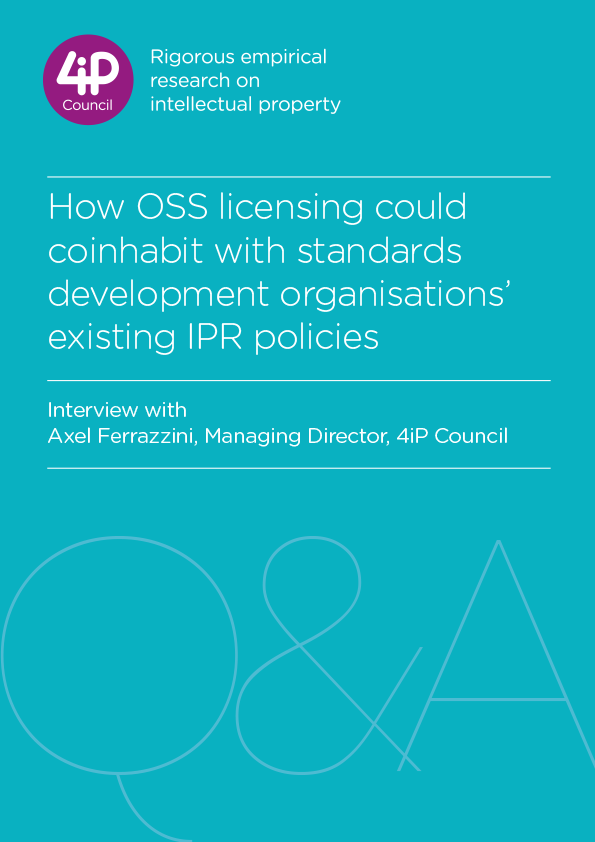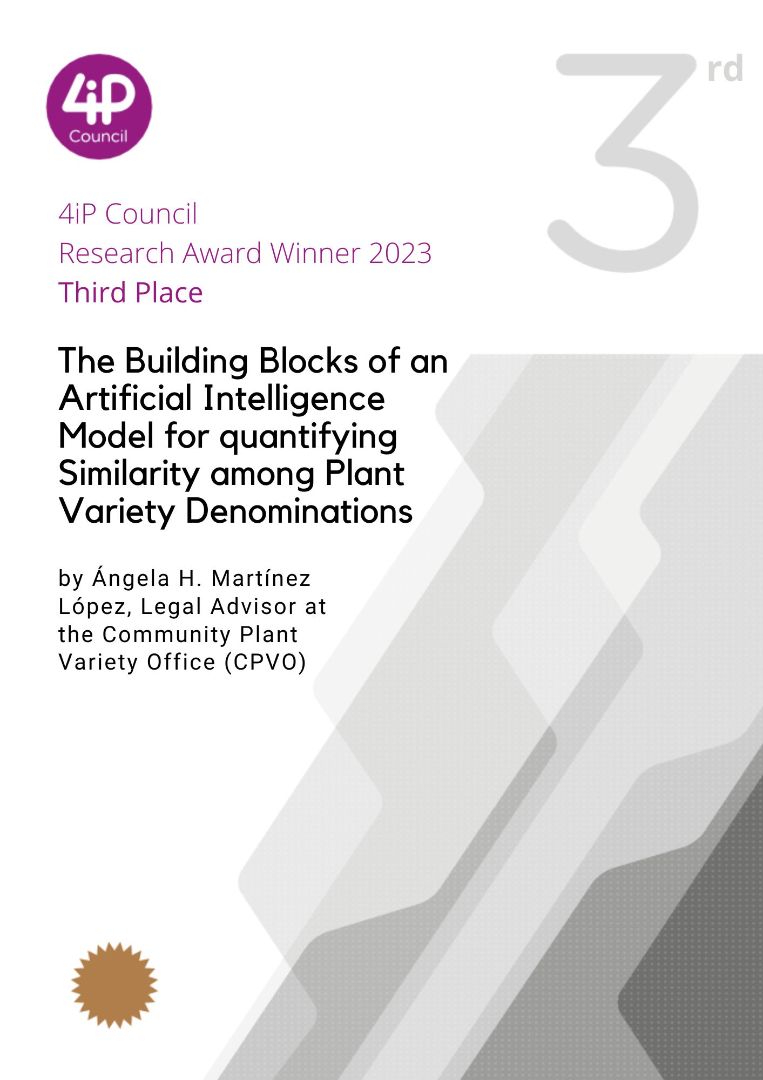How OSS licensing could coinhabit with SDOs’ existing IPR policies
Interview with Axel Ferrazzini, Managing Director, 4iP Council
Introduction
Over the past few years, standards development organisations (SDOs) have been assessing how open source software (OSS) could be used to complement standardisation activities. Given that most SDOs have pre-existing intellectual property rights (IPR) policies based on fair reasonable and non-discriminatory (FRAND) access to essential patents, a key challenge for SDOs has therefore been to determine how OSS licensing could coinhabit with SDOs’ existing IPR policies. This has led to considerable discussion and debate and some confusion.
Given the diversity of views on the topic, this document is intended to provide some clarity on some critical aspects. In order to do so, a ‘Question & Answer’ format with Axel Ferrazzini has been chosen, as Axel Ferrazzini has much experience in this field.
Axel Ferrazzini, who is Managing Director of 4iP Council, is an active participant to SDOs; an elected member of the Board of ETSI; as well as an active contributor to the ETSI Board OSS group, since its creation in 2014. In providing these answers, Mr. Ferrazzini has drawn on two recent research papers by Assist. Professor Martin Husovec and Jingze Li, from the Tilburg University and David Kappos’ (former Director of the United States Patent and Trademark Office) articles published by The Columbia Science and Technology Law Review (1, 2).
All views expressed in this publication are those of the interviewee and do not necessarily represent the views of 4iP Council nor of its supporters. This document is intended for information only and is not to be understood as legal advice.
Do you think that standards development and open source projects should be undertaken under the umbrella of the same organisation?
Generally, the interest of the standards development community is to oversee the development of stable, interoperable specifications which allow products and software from different manufacturers inter-operate. The interest of the OSS community is to develop a software base for various infrastructure functions (compilers, operating systems, software libraries and the like) that any manufacturer or user can pick up for free and then tailor to their needs. Where these goals align, it should not matter which organisation runs the SSO project, provided the organisation’s rules enable the OSS project without undermining the organisation’s objectives (though other legal considerations may come into play).
In fact, a more critical real question is more how the SDO and the OSS project can facilitate an efficient exchange of information that would satisfy any potential concerns regarding how the OSS project would accurately map the technical specification. Should the participants of the OSS project be different from the participants of the technical specification process: how to ensure that all the parts of the standard specification are fairly implemented? One grey area, which deserves further research, is whether an SDO can oversee the development of software, e.g. implementing a standard, because this could raise competition concerns by uniformising the implementation and potentially excluding parts of the technical specification.
Could you explain the current debate about compatibility of OSS and FRAND?
There are different definitions of what open source actually is, different types of open source communities, as well as hundreds of available open source licenses that vary in terms and scope. Given this broad variety of open source licenses and lack of consensus on a definition, the Open Source Initiative (OSI), which is a private certification authority, has been trying for some years to provide guidance to the open source community and, in doing so, control the variety of open source licenses available, which could, by the way, be a potential competition issue.






